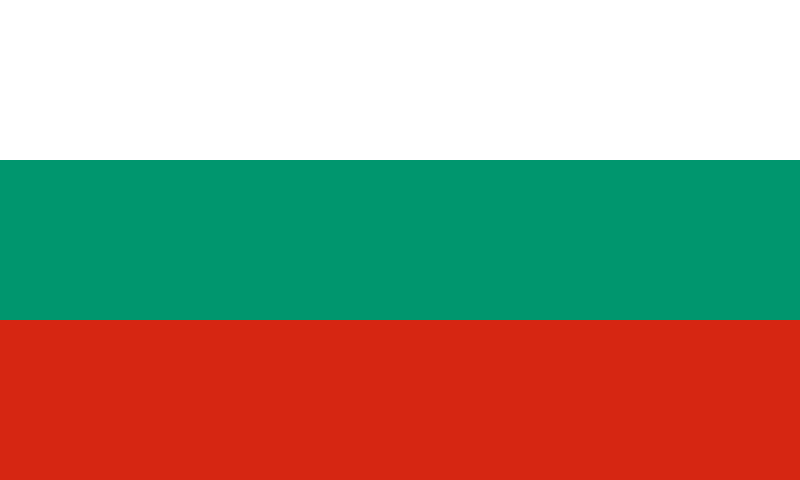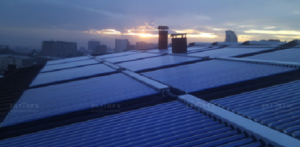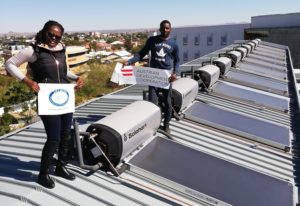Bulgarian Fund Gives Boost to Solar Thermal
March 21, 2014
Why is it that, although climate conditions in Bulgaria are favourable, you don’t see a lot of solar collectors on Bulgarian roofs? “The reason is simple,” Dimitar Doukov, Executive Director of the Energy Efficiency and Renewable Sources Fund (EERSF), says. “A lack of state subsidies, because Bulgarian homeowners can only apply for soft loans from the European Bank for Reconstruction and Development (EBRD).” Residential homeowners wouldn´t apply for an EERSF loan to invest only in a solar water heater, because the EERSF loans range from Bulgarian Lev (BGN) 30,000 to BGN 3 million. But an increasing number of hospitals and nurseries are equipped with solar collectors thanks to the fund’s activities. The photos show a nursery in the city of Burgas before and after renovation.
In his sunny office in the centre of the Bulgarian capital, Sofia, Doukov recalls the beginnings of his fund as the Bulgarian Energy Efficiency Fund (BEEF), which was a direct result of Bulgaria´s first Energy Efficiency Act in 2004. Most of its start-up capital came from the World Bank, but also the governments of Austria and Bulgaria, as well as private donors. Back then, the fund was the only financial institution in Bulgaria to offer loans below market interest rates to municipalities, companies and private individuals for their energy efficiency and renewable energy projects. “We had a starting capital of BGN 22 million (approx. EUR 11.3 million) and were obliged to lend this money for energy-saving investments until 2010. After we managed to do just that, we, in fact, started in 2011 to reinvest the fund’s earnings, which are around BGN 5 million (approx. EUR 2.56 million) annually.”
Fund’s experts support technical project evaluations
With the last amendments to the Renewable Energies Act in 2011, the fund changed its name to Energy Efficiency and Renewable Sources Fund (EERSF). “We were, in a way, upgraded from an energy efficiency fund to a renewable energy fund,” as fund manager Doukov puts it. Over the last ten years, the EERSF has financed 160 projects through loans amounting to almost BGN 44 million (approx. EUR 22.56 million). Some 60 % of the fund’s clients are municipalities, 27 % are corporate and private clients and the rest are institutions which generate their own revenue, such as universities and hospitals. They all benefit not only from getting favourable financing, but also from the technical project evaluations by the fund´s experts.
In mid-February 2014, the EERFS management board decided to adjust its loan terms to make borrowing money even more attractive by increasing the maximum payback period from five to seven years and by lowering interest rates. “In doing so, we aim at financing more complex projects which lead to bigger energy savings, but are more expensive and, therefore, cannot pay off as quickly as simpler energy efficiency measures,” Antony Zhelyazkov, EERSF`s Financial and Credit Analyst, says. He adds that an ever-increasing number of renewable energy systems, such as biomass boilers or solar water heaters, is being integrated into those projects. “At present, we are supporting several nurseries in the Black Sea town of Burgas, and almost all of them will have solar collectors installed,” he points to as an example (see also the photo above).
Solar water heaters gain importance
Both Doukov and Zhelyazkov are convinced that renewable energy systems, such as solar water heaters, have recently gained importance not only for projects financed by their fund, but also for ordinary Bulgarians, who are becoming increasingly aware of the benefits of this kind of green technology. “Previously, solar thermal energy was thought to be expensive. But now, considering rising energy prices, more and more Bulgarians realise that investments in the technology pay off quite quickly, within five or six years,” Doukov explains. However, he believes that it will still require a lot of effort to make Bulgarian citizens, as well as local and state administrators aware of the advantages of solar heating and cooling. “The way we see it, it is our duty not only to finance energy-saving projects to help reduce greenhouse gas emissions in our country, but also to support the development of a national market for green technology,” the executive director says.
More information
Energy Efficiency and Renewable Sources Fund (EERSF): http://www.bgeef.com
European Bank for Reconstruction and Development (EBRD): http://www.ebrd.com


